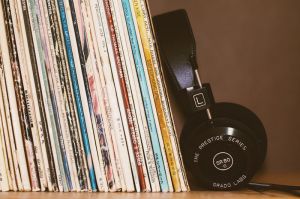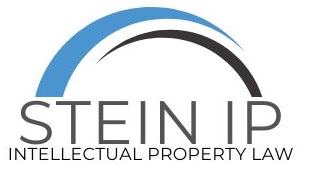- HOME
- > Blog Main Page
- > Music Licensing: Brief Overview of Music Rights and Types of Licenses
Music Licensing: Brief Overview of Music Rights and Types of Licenses
by Matt Digan
The music licensing regime that exists in the United States is an interlocking landscape of various rights and licenses that can be overwhelming to a newcomer. However, if an individual or company seeks to make use of music in some fashion, it is almost a guarantee that the entity will be implicating one or more music rights and need to use one or more music licenses. This article provides a brief and by no means exhaustive overview of some of the various music rights and licenses that exist. 
Music Rights
U.S. copyright law does not provide for one copyright in a song, but rather splits the song into a musical composition copyright and a sound recording copyright. Various music licenses are then employed to make use of one or both of these copyrights in a song.
The musical composition encompasses the music (i.e., the melody, rhythm, harmony) and any accompanying lyrics of a song. Composers, lyricists, and/or songwriters are usually the literal authors to musical compositions, but it is most common for publishing companies to own the rights. Owners of musical compositions have the exclusive right to reproduce the work, prepare derivative works, distribute copies to the public by sale, rental, lease, and lending, perform the work publicly, and display the work publicly.
The sound recording copyright covers the specific fixed, recorded version of the musical composition and is most often owned by record labels. Owners of sound recordings have the same exclusive rights as owners of musical compositions except that they do not have the right to display the work publicly because such a right is not applicable to sound recordings.
Though technically a single person or entity could own both copyrights to an individual song, the music industry is structured such that the musical composition and sound recording copyrights are often owned by different entities. That means anyone wishing to obtain one or more of the various licenses discussed below will likely have to contract with more than one party.
Types of Music Licenses
The four most common music licenses needed for use of a song are master use licenses, synchronization (sync) licenses, public performance licenses, and mechanical licenses. Some combination of those licenses is almost always required for the use of a song.
Master use licenses are needed for the use of a specific recorded version of a song (i.e., a sound recording) in either an audio or visual format. A master use license for a given song is most often obtained from the record label that owns the sound recording rights in that song. It is important to note that obtaining a master use license for a song does not cover the musical composition rights in that song. Another license is generally needed in conjunction with a master use license to cover all the implicated rights. Finally, master use licenses do not implicate public performance rights. One cannot obtain a master use license for a song and then perform that song publicly. While publicly performing a song is technically a use of a specific recording of a song, it is treated differently with its own license (see below).
A sync license is required for use of a musical composition in an audiovisual format and is often obtained in conjunction with a master use license. The name is derived from the action of “syncing” audio with video. For example, if a company wanted to use a popular song in a television commercial for a car, it would need to obtain a sync license from the owner of the musical composition—usually a music publishing company—and a master use license. In practice, sync licenses are almost always used with master use licenses, but technically the two are not always necessary (e.g., a company could acquire a sync license for a musical composition and then record its own version, obviating the need for a master use license, but this is not common).
A public performance license may be the most widely used and issued music license, as it covers any playing or broadcasting of a song outside a small private group of friends or family. “Broadcast” is construed broadly and applies to any performance in a public place where people gather and to transmissions via radio, television, or the Internet. Bars and stores wanting to play music for their customers are prime examples of activity requiring a public performance license. This license is most commonly obtained through a performing rights organization (PRO), such as ASCAP or BMI.
Finally, a mechanical license is needed for any physical reproduction of a musical composition. This usually only applies to people or companies seeking to create a cover of an existing musical composition to be used in an audio-only format (CD, MP3, streaming, etc.). Additionally, almost any use of a song that requires a mechanical license will also require a master use license to cover all of the relevant rights. In the U.S., copyright law provides for compulsory mechanical licensing, which means that someone wishing to obtain a mechanical license does not need to obtain the express permission of the owner, but rather need only follow the necessary steps. In practice, most mechanical licenses are handled by companies like the Harry Fox Agency, which conducts mechanical licensing on behalf of musical composition owners.
Final Thoughts
Whatever the specific intended use of music is, rest assured that someone (read many people) has probably already used music in a similar way. Because of the widespread licensing of music over the decades, specific systems and procedures have formed to streamline the process as much as possible. Though it can still be a daunting process given the sheer number of rights and licenses, it is not impossible.
Also keep in mind that a use of music may not require a license or implicate others’ rights. Songs that are already in the public domain do not require licenses, though the selection might be slim. Some music and songs are made available through Creative Commons (not covered here). Additionally, there are companies that license pre-cleared music for common media uses (aka stock music). Finally, there is always the option of creating new music from scratch through commission and/or contract.
References
U.S. Copyright Office, “Copyright Registration of Musical Compositions and Sound Recordings,” Copyright.gov, https://www.copyright.gov/circs/circ56a.pdf.
ASCAP, “ASCAP Licensing,” ASCAP.com, https://www.ascap.com/help/ascap-licensing#:~:text=its%20social%20acquaintances).-,A%20public%20performance%20is%20also%20one%20that%20is%20transmitted%20to,the%20music%20or%20his%20representative.

TAGS:
RECENT POSTS
